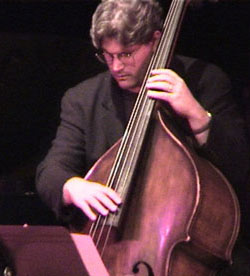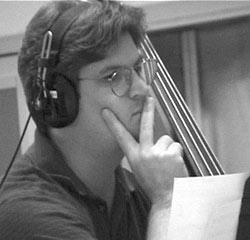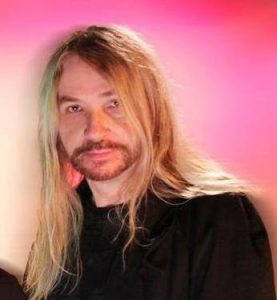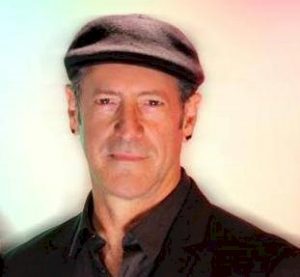
Artist Profile:
Trey Henry
 Trey Henry Musical Beginnings I took up the string bass when I was 13 in order to avoid a seventh grade art teacher with an unpleasant reputation. Then when I first saw the bass I had to play in class, I had to fight back tears. It had peoples initials carved into it (including mine) and I knew my friends would be ruthless. Most of my friends were guys that I played in bands with. They’re still my closest and certainly lifelong friends.
Trey Henry Musical Beginnings I took up the string bass when I was 13 in order to avoid a seventh grade art teacher with an unpleasant reputation. Then when I first saw the bass I had to play in class, I had to fight back tears. It had peoples initials carved into it (including mine) and I knew my friends would be ruthless. Most of my friends were guys that I played in bands with. They’re still my closest and certainly lifelong friends.
As a musician that is almost entirely produced the LA Unified School District, I didn’t have a formal lesson until high school. The first thing my teacher demanded was that I get a briefcase for equipment and sheet music, and a date book.
My parents were very encouraging, not being discouraging. They let me rehearse with various rock bands at their house and occasionally loaned me money for some of the worst musical instruments in history.
My main focus was to be versatile, I love and respect just about every form of music and have always strived to exp erience them all. I thought making a living as a musician would be cool, too.
erience them all. I thought making a living as a musician would be cool, too.
I didn’t come to jazz however, until college. It struck me as something profoundly challenging and beyond me. It is a musician’s music though. And I soon became addicted. Creating musical thoughts that are appreciated and understood no matter who’s playing or listening… Rare and priceless.
I guess what really blows my mind about jazz, is the unity. The ability of people from vastly different backgrounds, people who love each other, hate each other, have never met or spoken to communicate on an intimate level spontaneously.
The first band I was in was called Essence. Our first gig was a retirement party. We were playing “Sailing” Christopher Cross and a guest had a heart attack and died on the dance floor right in front of us. Omen?
Out of all the great musicians I’ve played with, Andre Previn really scared me. I went to Japan with Previn and Julie Andrews. She was singing with the NHK Symphony and he was conducting. She was doing several melodies. – Sound of Music, Mary Poppins etc… Each melody was endless. We rehearsed for hours because no one including Previn had seen the music. We returned the next day for rehearsal and Previn had no scores. He had memorized the entire program over night.
Gerald Wilson called me last minute to play at “Marla’s Memory lane” in Compton, CA. I showed up and there were maybe three charts in the book. The rest were missing. I played far more wrong notes than right ones that night and I felt awful. Then at the end he came up to me and said “Can you come back tomorrow?” I’ve been with him now for 17 years.
I’ve had a recurring musical epiphany. It’s happened with just 3 musicians – Ray Brinker, Christian Jacob, and Herbie Hancock. When you play with great players you want desperately to contribute. With these musicians you simply listen to what they play and your fingers go directly to all the right places and you sound like a genius.
I first began working with Christian and Ray with the Maynard Ferguson band. The first gig was at “The Caravan of Dreams” in Dallas, TX. I felt very self conscious because I didn’t think I could hang with those guys.
The music on Styne and Mine is amongst the most demanding and challenging music I’ve ever been involved with from beginning to end. I expected to be nervous and intimidated but as we rehearsed and became more familiar with the music, I realized this could turn out to be a very honest and natural performance captured on a CD. After listening to the finished product, I can say this is far the most accurate portrayal of me as a musician and an excellent opportunity to hear 3 musicians be themselves.
I’m in one band, The Tierney Sutton Band, because I’m able to be myself as a bass player, a musician, and a person. If I can find another group of people like that, I’ll be in two bands.
One of the truly great events of my life was doing a demonstration of the bass at my daughter’s preschool and seeing the pride in her eyes.
1980 I played the sousaphone in the Rose Parade. 7 miles, horses, etc.
Improving as a musician is a slow, painstaking and in some cases imperceptible process. Allowing yourself to change as a musician is as important, if not more. Change isn’t necessarily good, but it is evolution, and can open creative doors.


